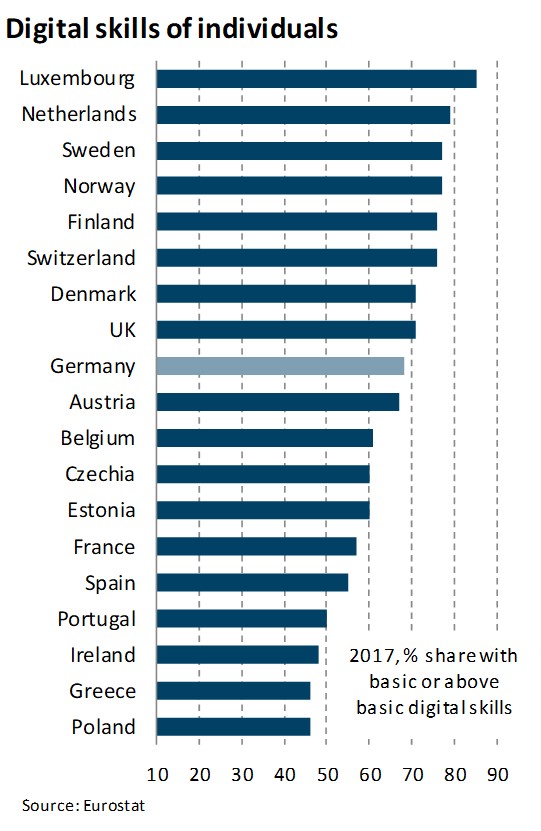
5. Education
In all age groups, the competence in dealing with technology, with oneself and with other people increases
Desirable Future
Digital technologies provide people of all ages and income groups with simple, affordable and individual access to reliable data and information. Digital and analogue possibilities are sensibly combined. The technologies create free capacities among educators, which are used for more individual, human support.
Low-threshold educational offers from kindergarten via family life to old age teach – in addition to classical and technical content – the conscious, mindful use of digital media. This increases people’s competence in the use of different devices and applications. At the same time, people are able to critically assess the quality of various sources and their significance for their own lives and for living together with their fellow humans. They can use data and information to derive the knowledge and wisdom that will make it easier for them to lead a self-determined, successful life without losing their orientation due to information overload. Personal goals can be interpreted more and more individually with the help of digitalization. The educational activities help people to collaborate and communicate with other people in order to be able to pursue these goals collaboratively.
The results show positive effects on people’s life satisfaction, the competence level of employees in research and companies, but also on living together and democracy.[References: 1. I: The Individual, 3. Work & Economy, 10. Community]
Specific Projects
Irmgard App for Illiterates
The app enables young people and adults to train their literacy skills.
Digitale Parlours
Supports in dealing with digital media and new technologies.
Open Educational Resources
Free learning and teaching materials with an open license.
Coursera
Provides universal access to the world’s best education through online courses.
Deutsche Digitale Bibliothek (German Digital Library)
The Internet should provide free access to Germany’s cultural and scientific heritage for everyone.
Correctiv
Independent journalism for and with society.
Recommendations for Action
- Individual: devote time and attention to the topic. Critically question what one reads and hears.
- Schools & Teachers: Strengthen offers on digital topics, if necessary together with independent external experts.
- Countries: continuing education for teachers.
- Business: Train employees.
- Public institutions and adult education centres: Teach digital skills at low thresholds.
Suitable indicators
- Share of people with basic or above basic digital skills: DE 68% (2017; NL 79%)
- Share of people aged 16 to 74 who have taken an online course in the last 3 months:
DE 6% (2017; SE/FI 17%) - Do you have the impression that digital education helps people in Germany to develop into independent personalities? Scale 0 not to 10 yes completely.


